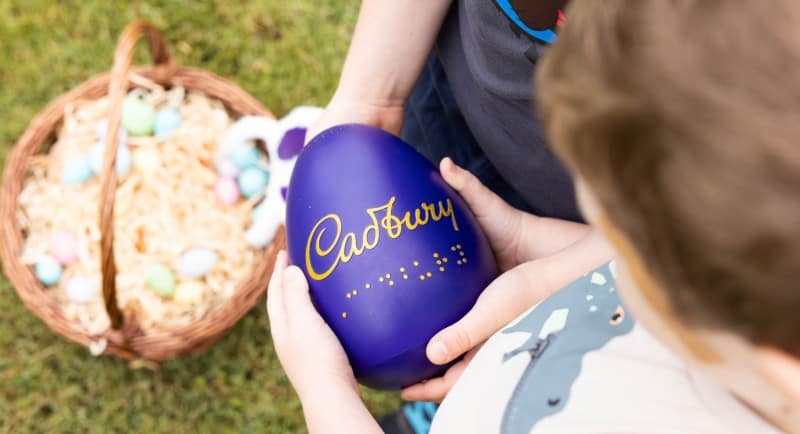In a bid to redefine and broaden the experience of Easter as a more inclusive and accessible occasion, Cadbury expanded its Accessible Easter Egg Hunt, hosting the event for the first time in Sydney with NextSense on Saturday 23 March.
NextSense is a nonprofit organisation catering to Australians with visual or auditory impairments. Formerly known as the Royal Institute for Deaf & Blind Children (RIDBC), NextSense underwent a rebrand in in 2021 via brand consultancy Interbrand to better align its identity with its mission of enhancing the futures of children with sensory impairments.
Nicole Smith, NextSense’s director of marketing and communications, at the time emphasised the importance of accessibility in their brand, which was manifested through their strategic colour palette and design choices.
Said Smith: “Our aim is to enhance lives for people with hearing or vision loss and this brand brings that to life through its accessible AAA compliant colour palette, hyper legible bespoke font and vibrant photographic style while our tone of voice is empathetic, empowering and positively focussed on enhancing futures.”
See also: ‘They’ve already got some brand recognition’: Branding the Tasmania Devils AFL team
Saturday’s Accessible Easter Egg Hunt, which followed the success of its inaugural event in Melbourne last year, was produced in collaboration with FutureLabs, a creative technology studio.
Through the partnership, Cadbury reintroduced its state-of-the-art Accessible Easter Egg, leveraging sound, Bluetooth, and proximity sensor technologies. This approach shifts the traditional Easter egg hunt experience from visual to auditory, enabling individuals with visual impairments and their families to participate in the tradition.
FutureLabs’ CEO and co-founder Daniel Hewitt told Mediaweek the company was thrilled with the success of the drive, and was grateful to play a part in the occasion, describing the pioneering initiative as not only showcasing the power of technology but demonstrative of FutureLabs’ commitment to fostering inclusivity.
“The creation of accessible Easter eggs, made possible through innovative technologies, exemplifies how brands can champion inclusive experiences,” said Hewitt.
“As we move forward, FutureLabs see a clear path for more brands to follow Cadbury’s lead, paving the way for further innovation and accessibility in all aspects of life.”
Ben Wicks, vice president of marketing Australia and New Zealand for global snack brand Mondelez (of which Cadbury is a part), said the decision to extend the Accessible Easter Egg Hunt to Sydney stemmed from Cadbury’s observation of NextSense’s impactful work.
“Opening up the Accessible Easter Egg hunt to the members of the NextSense community who are vision impaired and their families has further solidified our commitment to continue supporting the wider community and make Easter an accessible celebration for all,” said Wicks.
Chris Rehn, chief executive of NextSense, echoed the sentiment, remarking on the social significance of initiatives like The Accessible Easter Egg Hunt.
“It’s important we continue talking about how to make Australia a more inclusive society and events like today help to keep that very important conversation going,” said Rehn.
See also: Publicis launches Disability Access and Inclusion Plan
